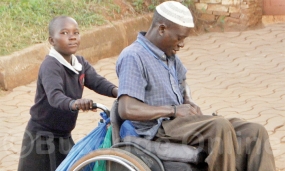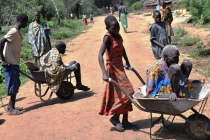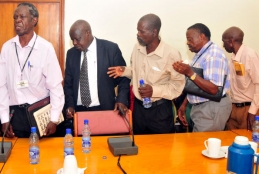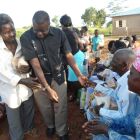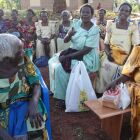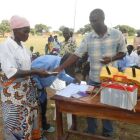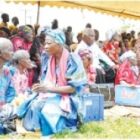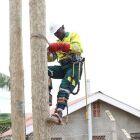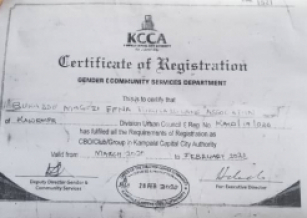UGANDA, Kampala- The ministry of Finance has for the last 20 months not paid pensioners who retired from the defunct Uganda Posts and Telecom Corporation.
The pensioners fault a number of government departments for engaging them in a cat-and-mouse chase as they pursue their retirement benefits.
Information available to this newspaper indicates the ministry of Finance stopped remitting money to Uganda Communications Employees Contributory Pension Scheme (UCECPS) – a government scheme where the workers’ benefits are channeled from the Finance ministry’s Privatisation Unit (PU) - in April 2015.
According to letters this newspaper has seen, Mr Keith Muhakanizi, the Secretary to the Treasury, on July 2, 2015 requested the Auditor General (AG) to undertake a special audit of UCECPS after requests by the scheme to be given more money to pay the pensioners.
When contacted, ministry of Finance spokesperson Jim Mugunga said the ministry could not handle the pensioners’ issues without the results of the AG’s audit.
“There were issues with the fund and the ministry requested for an audit by the AG. We are yet to receive the results,” Mr Mugunga said.
Three months after Mr Muhakanizi’s July 2, 2015 audit request, Ms Keto Nyapendi Kayemba, the assistant AG, asked for more time to complete the audit.
Audit scope widened
In an October 27, 2015 letter to the director of the Privatisation Unit on the update of the audit, Ms Kayemba said “the scope of this special audit has inevitably been extended to start right from inception of the scheme in 1998. We anticipate, therefore, that the exercise will necessitate at least two months to be completed.”
Ms Kayemba’s audit extension request should have ended in December last year but to date, 11 months later, no report has been presented to the Finance ministry, the pensioners or their fund managers.
It has since taken more than a year to audit the fund, which has less than 700 pensioners.
The AG spokesperson, Ms Gloria Namugera, explained that the process of validation of pensioners countrywide and calculating the pension funds from 1998 to date required more time than had been anticipated.
“By early December, the audit report should be out,” Ms Namugera said.
Challenged on whether it is the AG’s habit to recommend halting pay to employees and clients of organisations they are auditing, Ms Namugera said: “It is not up to us to recommend pay or not but an organisation would be more comfortable to pay after validation. The information provided after auditing is vital and may have implications on current and future payments.”
Mr David Nkojo, the UCECPS chairman of board of trustees, said the fund’s hands are tied in as far as helping their clients.
“We are waiting for government to give us money. We have been doing audits but the Secretary to the Treasury [Muhakanizi] requested for this particular one to be done by the AG,” he said.
The pensioners, however, have contested the legality of their staying unpaid for the whole period.
“It is illegal not to pay us. We should be paid. Many of us are dying. Since we started the scheme, we have lost more than 100 colleagues,” Mr Santos Alima, the chairperson of Uganda Communications Pensioners Association (UCOPA), told Sunday Monitor in an interview.
Nb
It is unfortunate indeed. The system is not working.

